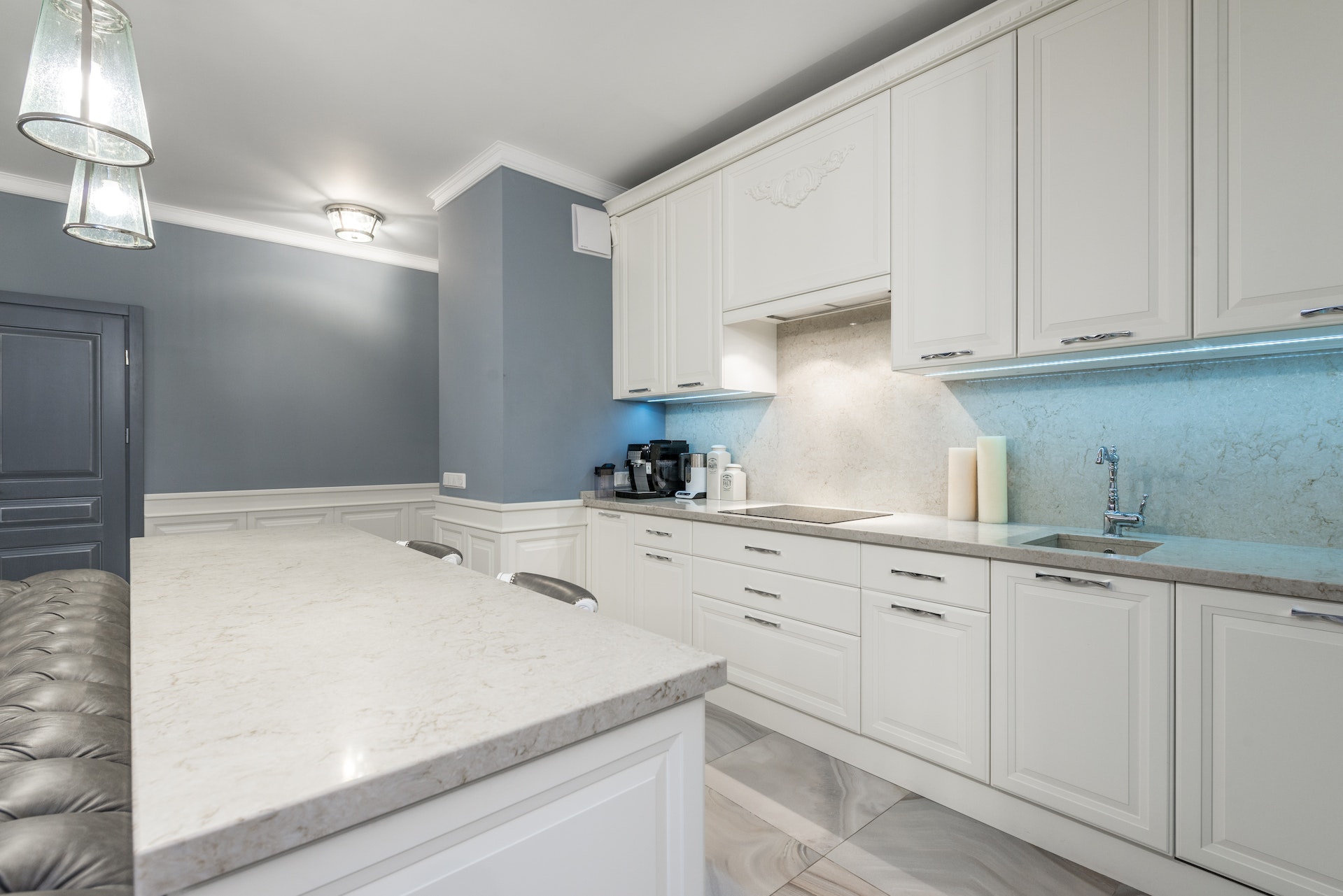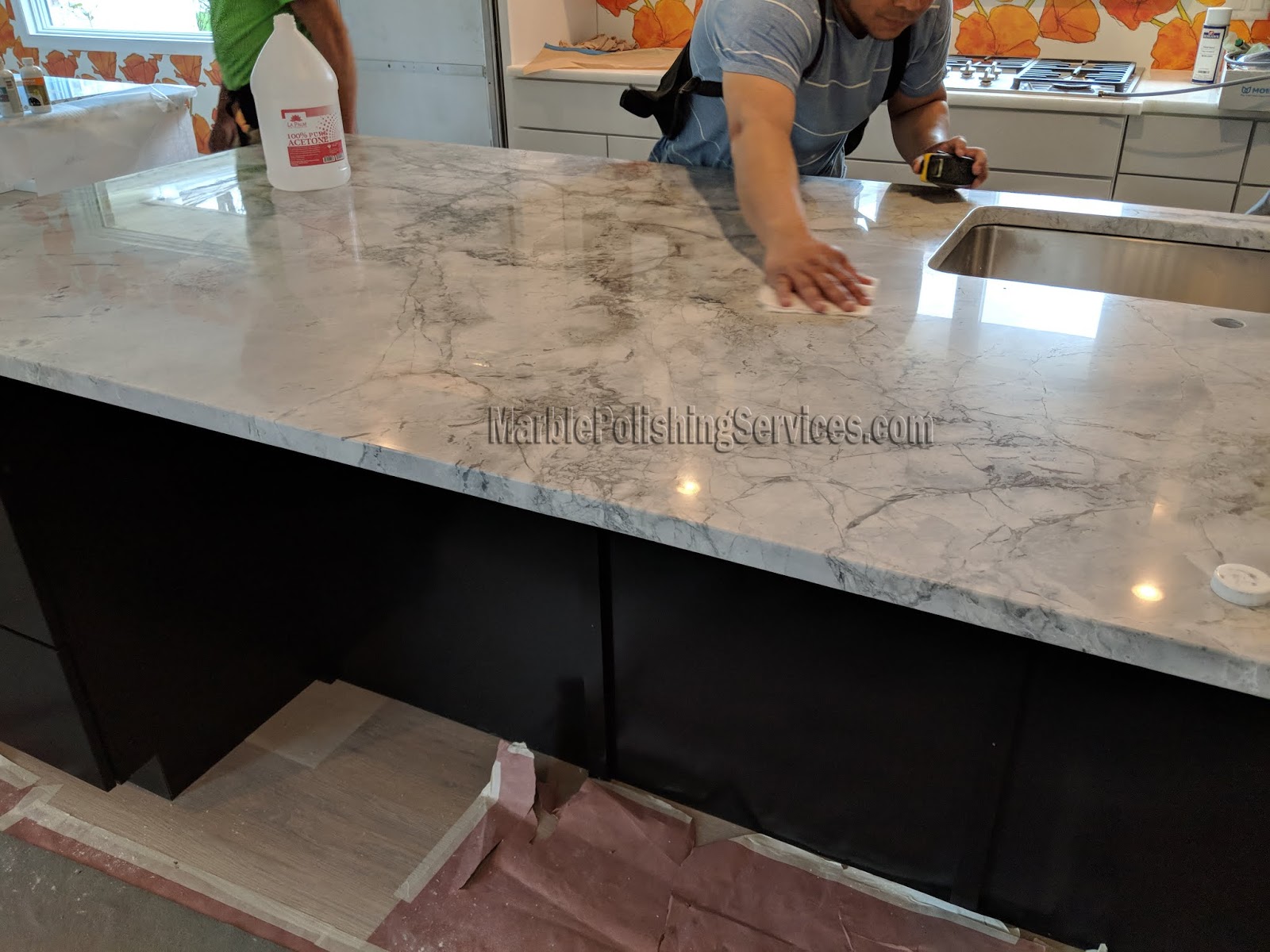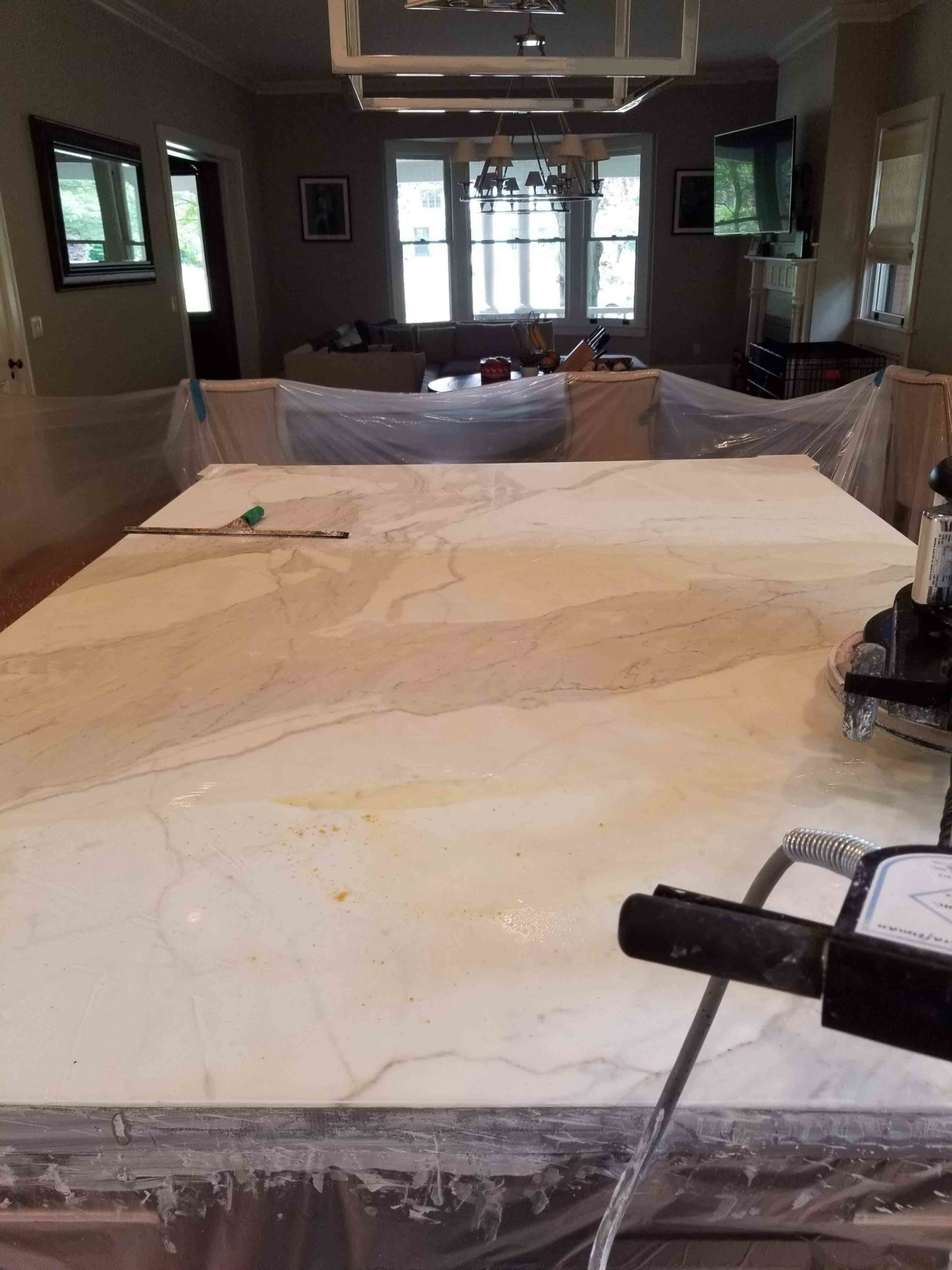Let’s face it—marble countertops are the crown jewels of any kitchen or bathroom. But with their beauty comes a responsibility: protecting them from stains, scratches, and etching. And that’s where sealing comes in. If you’re wondering how to seal marble countertops, you’re not alone. This process is crucial to keeping your marble looking fresh and vibrant for years to come. So, grab a coffee or tea, and let’s dive into everything you need to know about sealing marble countertops like a pro.
Marble is a natural stone that’s porous, which means liquids and oils can seep in and cause damage if left untreated. Whether it’s a splash of red wine, a dollop of olive oil, or even everyday water, these elements can wreak havoc on your marble surface. That’s why sealing is more than just an option—it’s a necessity.
In this guide, we’ll break down the entire process of sealing marble countertops step-by-step. From choosing the right sealer to maintaining your marble’s shine, you’ll have all the tools you need to keep your countertops looking flawless. Ready? Let’s get started!
- Zulfiya Kvyat The Inspiring Journey Of A Rising Star In The Spotlight
- Unveiling The Wolverine Name The Ultimate Guide To Its Origin Meaning And Popularity
Table of Contents
- Why You Should Seal Your Marble Countertops
- Choosing the Right Sealer for Your Marble
- The Prep Process: Cleaning and Drying
- Step-by-Step Guide to Sealing Marble
- Common Mistakes to Avoid
- Types of Sealers: Which One Should You Use?
- Maintaining Your Sealed Marble Countertops
- Frequently Asked Questions About Sealing Marble
- Understanding the Costs of Sealing
- Final Thoughts on Sealing Marble Countertops
Why You Should Seal Your Marble Countertops
First things first—why bother sealing marble countertops? Well, here’s the deal: marble is a natural stone, and like most natural materials, it has tiny pores that can absorb liquids. Think about it—if you spill something acidic like lemon juice or vinegar on your marble, it can etch the surface, leaving dull spots that are tough to remove. And let’s not forget stains from red wine, coffee, or even oil-based products. Yikes!
Sealing your marble creates a protective barrier that repels these liquids, giving you time to wipe them up before they cause any damage. Plus, a good sealer enhances the natural beauty of the marble by bringing out its rich colors and patterns. So, sealing isn’t just about protection—it’s also about preserving the aesthetic appeal of your countertops.
Benefits of Sealing Marble Countertops
Here’s a quick rundown of the benefits:
- Charles Shaughnessy The Man Who Left An Indelible Mark On Hollywood
- Luxmovies New Website Your Ultimate Movie Streaming Destination
- Prevents stains from penetrating the surface
- Protects against etching caused by acidic substances
- Enhances the natural beauty of the marble
- Extends the lifespan of your marble countertops
Choosing the Right Sealer for Your Marble
Now that you know why sealing is important, the next question is: what sealer should you use? There are tons of options out there, but not all of them are created equal. The key is to choose a sealer that’s specifically designed for natural stone like marble. Here are some factors to consider:
First off, there are two main types of sealers: topical and penetrating. Topical sealers sit on the surface of the marble, creating a shiny, protective layer. Penetrating sealers, on the other hand, soak into the stone and bond with it, providing deeper protection without altering its appearance. Both have their pros and cons, so it’s important to weigh your options.
Topical vs. Penetrating Sealers: Which One’s Right for You?
Let’s break it down:
- Topical Sealers: Great for high-traffic areas where you want extra protection. They’re also easier to apply, but they can wear off over time and may require more frequent reapplication.
- Penetrating Sealers: Ideal for maintaining the natural look of your marble. They’re more durable and long-lasting, but they can be trickier to apply and may require professional help.
The Prep Process: Cleaning and Drying
Before you start sealing, you’ll need to make sure your marble countertops are clean and dry. Trust me, skipping this step can ruin the entire process. Here’s how to prepare your marble for sealing:
Start by giving your countertops a good cleaning with a mild soap and water. Avoid using harsh chemicals or abrasive cleaners, as these can damage the marble. Once you’ve cleaned the surface, dry it thoroughly with a soft, lint-free cloth. And don’t forget to remove any lingering moisture by letting the countertops air dry for at least 24 hours. Patience is key here!
Tips for Prepping Your Marble
Here are a few extra tips:
- Use a pH-neutral cleaner to avoid damaging the marble
- Wipe in the direction of the marble’s grain for a smooth finish
- Double-check for any remaining moisture before sealing
Step-by-Step Guide to Sealing Marble
Alright, let’s get into the nitty-gritty of how to seal marble countertops. Follow these steps carefully, and you’ll have a beautifully sealed surface in no time.
Step 1: Test the Sealer
Before applying the sealer to your entire countertop, do a small test patch in an inconspicuous area. This will help you ensure the sealer doesn’t alter the appearance of your marble. Apply a small amount of sealer and let it sit for a few minutes before wiping it off. If everything looks good, you’re ready to move on.
Step 2: Apply the Sealer
Using a clean, lint-free cloth or applicator, apply the sealer evenly across the surface of your marble. Make sure to cover the entire area, paying special attention to edges and corners where spills are more likely to occur. Let the sealer sit for the recommended amount of time (usually 10-15 minutes) before wiping off any excess with a clean cloth.
Step 3: Let It Cure
After applying the sealer, give it time to cure. Most sealers require at least 24 hours to fully cure, so avoid using your countertops during this time. Once the sealer has cured, test its effectiveness by spilling a small amount of water on the surface. If the water beads up, you’ve done a great job!
Common Mistakes to Avoid
Sealing marble countertops might seem straightforward, but there are a few common mistakes that can ruin the process. Here are some things to watch out for:
- Not cleaning the surface properly before sealing
- Using the wrong type of sealer for marble
- Applying too much sealer, which can leave a sticky residue
- Not letting the sealer cure completely before using the countertops
By avoiding these mistakes, you’ll ensure a successful sealing job that protects your marble for years to come.
Types of Sealers: Which One Should You Use?
As we mentioned earlier, there are different types of sealers available, each with its own advantages and disadvantages. Here’s a closer look at the most popular options:
Silicone-Based Sealers: These are durable and provide excellent protection against stains and etching. However, they can be difficult to apply evenly and may require professional assistance.
Fluoropolymer Sealers: Known for their long-lasting protection, these sealers are great for high-traffic areas. They’re also resistant to UV rays, making them ideal for countertops near windows.
Natural-Oil Sealers: If you’re looking for a more eco-friendly option, natural-oil sealers are a great choice. They enhance the natural beauty of the marble without using harsh chemicals.
Maintaining Your Sealed Marble Countertops
Sealing your marble countertops is just the beginning. To keep them looking their best, you’ll need to maintain them properly. Here are some tips for maintaining your sealed marble:
- Clean spills immediately to prevent stains
- Use coasters and trivets to protect against heat and moisture
- Reapply the sealer every 1-2 years, depending on usage
- Avoid using abrasive cleaners or scrubbers on the surface
With regular maintenance, your marble countertops will stay in tip-top shape for years to come.
Frequently Asked Questions About Sealing Marble
Still have questions about sealing marble countertops? Here are some common FAQs:
How often should I seal my marble countertops?
Most experts recommend sealing your marble every 1-2 years, depending on usage and the type of sealer you use. To check if your marble needs resealing, perform the water test: spill a small amount of water on the surface. If the water beads up, your sealer is still effective. If it absorbs into the marble, it’s time to reseal.
Can I seal my marble countertops myself?
Absolutely! Sealing marble is a DIY-friendly project that most homeowners can tackle with ease. Just make sure to follow the instructions carefully and take your time.
What happens if I don’t seal my marble?
If you don’t seal your marble, it’s more susceptible to stains, etching, and damage from everyday use. Over time, this can diminish the beauty and value of your countertops.
Understanding the Costs of Sealing
Sealing marble countertops doesn’t have to break the bank. The cost will depend on several factors, including the type of sealer you choose, the size of your countertops, and whether you hire a professional or do it yourself. On average, you can expect to spend anywhere from $100 to $500 for materials and labor.
If you’re on a budget, consider doing the sealing yourself. With a little bit of time and effort, you can save a significant amount of money while still achieving professional results.
Final Thoughts on Sealing Marble Countertops
Sealing your marble countertops is one of the best things you can do to protect and preserve their beauty. By following the steps outlined in this guide, you’ll have a durable, stain-resistant surface that’s sure to impress. Remember to choose the right sealer, prepare your surface properly, and maintain your countertops regularly for the best results.
So, what are you waiting for? Grab your sealer and get to work. And don’t forget to share your success story in the comments below—I’d love to hear how your sealing adventure went!



Detail Author:
- Name : Ms. Madelyn Hills
- Username : maverick11
- Email : hahn.green@hotmail.com
- Birthdate : 1975-02-24
- Address : 70569 Monahan Corner Kreigerfort, OK 53614
- Phone : +1 (661) 821-9181
- Company : Muller-Conn
- Job : Installation and Repair Technician
- Bio : Culpa optio aperiam sint. Eligendi accusantium sunt sit reiciendis tempora.
Socials
instagram:
- url : https://instagram.com/breitenberg2004
- username : breitenberg2004
- bio : Et soluta soluta aut omnis cum. Ex sit a nam inventore harum. Aut quia ipsam facere delectus aut.
- followers : 4589
- following : 789
linkedin:
- url : https://linkedin.com/in/breitenberga
- username : breitenberga
- bio : Expedita quia eius et nihil eum.
- followers : 294
- following : 2215
facebook:
- url : https://facebook.com/armando_breitenberg
- username : armando_breitenberg
- bio : Vitae enim architecto ad deleniti asperiores autem et.
- followers : 800
- following : 2049